Graham Reid | | 27 min read
Turnaround (from Sound Grammar, 2006)
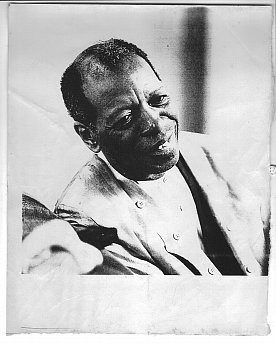
This interview took place on 26 April '96 in the studio of photographer Austin Trevitt, 241 West 36th Street, in the same midtown building as one of Ornette's studios.
.
For a man who's had his lights punched out, was reviled by critics and audiences, often ignored and -- in latter years -- belatedly recognised as a genius, Ornette Coleman is remarkably slight.
Even with his hat on he hardly towers above average height and his slight frame and barely audible voice wouldn't seem to have ever posed much of a threat.
Yet Ornette Coleman has been on the flat end of a fist or two and his critics have been legion.
But here he is in this photographer's studio 16 floors above midtown New York, his demeanour quiet, the handshake assured and the voice touched by a gentle lisp.
At sixtysomething (the birthdate disputed, but he's at least 65) Coleman still cuts a figure. Always a distinctive dresser, he arrives for this rare interview in a blue checked suit with buttons up the sleeves and around the scalloped lapels, vividly purple waistcoat and collarless shirt buttoned to the neck.
The shirt buttons, perhaps symbolic given his wayward career, have arrow designs on them which point myriad different directions.
This then is Randolph Denard Ornette Coleman, most often associated with jazz but best described as a composer, who emerged from his hometown of Fort Worth, Texas to redirect music in Free Jazz -- the title of his seminal 1960 album which had two quartets improvising simultaneously and which drew the first wave of critical and public condemnation.
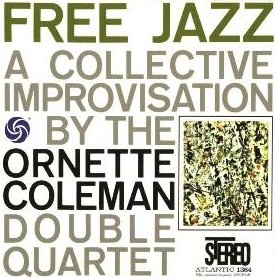 And he is the foremost practitioner of his own mystifying “harmolodic” style of music in which all sound is created equal.
And he is the foremost practitioner of his own mystifying “harmolodic” style of music in which all sound is created equal.
“Remove the caste system from sound” is just the most recent aphorism from this man who has worked with the late Jerry Garcia of Grateful Dead, the spiritually inclined Master Musicians of Joujouka in the kif-heavy hills of Morocco, the London Symphony Orchestra (who recorded his orchestral work Skies of America), numerous string quartets and dance companies, the London Philharmonic Orchestra (for the Naked Lunch soundtrack) and even sang with an amateur chorus at one of Louis Armstrong's final sessions.
Oh, and he played the White House for Jimmy Carter in 77 and has worked with Yoko Ono.
Yet for a man whose work has encompassed communicating with that diversity of musicians, he has often seemed confounded by language. His sentences are notoriously convoluted and sometimes cryptic, he slides off into tangents, often seems to contradict himself -- but isn't -- and can seem charmingly naive. (“I did a painting of a young girl painted like a rainbow and I called it A Girl Named Rainbow,” he says of a work he saw auctioned off the night before to raise funds for El Salvador.)
And sentences roll with little regard to natural pauses and fullstops.
.
Thank you for your time, I appreciate you are a very busy man.
I read your fax and thought this was a person I'd like to meet.
Thank you. And are you busy at the moment?
This week I have been pretty busy, we are putting out two records and last night I had a piece of art work at an auction. If I'm looking as little tired, that's why.
This was your own artwork?
Yeah, I did a painting of a young girl painted like a rainbow and I called it “A Girl Named Rainbow”. It was auctioned off for El Salvador.
Did it realise a good price?
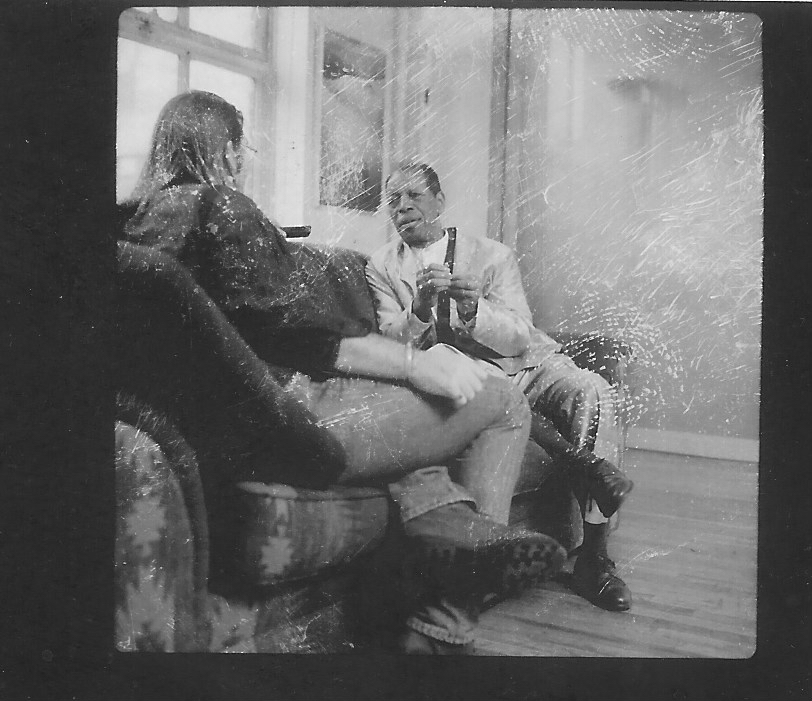 Oh, yeah (laughs)
Oh, yeah (laughs)
You said there were two records coming out, I take it through Harmolodic and both yours?
The name of the records are the Sound Museum and they are two with identical compositions interpretated (sic) different ways. One has a painting of a male and the other has a female, two different covers and the same music. We are also putting out two records that [producer] John Snyder put out, one is Body Meta and the other Soapsuds.
Terrific -- because that's what I wanted to ask you about. It has always seemed to me that there's a lot of Ornette Coleman music out there in the world that could come back in.
That's true, and I‘ve also had a lot of music that's come back in that I didn‘t know about! Things I didn't have anything to do with. I think I've had more people who seem to be able to make a living from my music and it doesn't matter if it's old or new. It‘s getting through.
I'm delighted to hear the two Artist House albums are coming back. Charlie Haden got his As Long As There 's Music out.
Oh, that's good.
The Artists House rights all . . .
Yeah, went back to the artists. John Snyder was a musician himself so he was aware of the conditions of the artists.
It was a noble failure, that idea I always thought.
Yeah, it was because he was always interested in the music than the business part. The business part has to be protected in a way where people feel they want to continue to work with you, and with John it just needed a lot of other connections, but what he done was good.
They were beautifully presented albums.
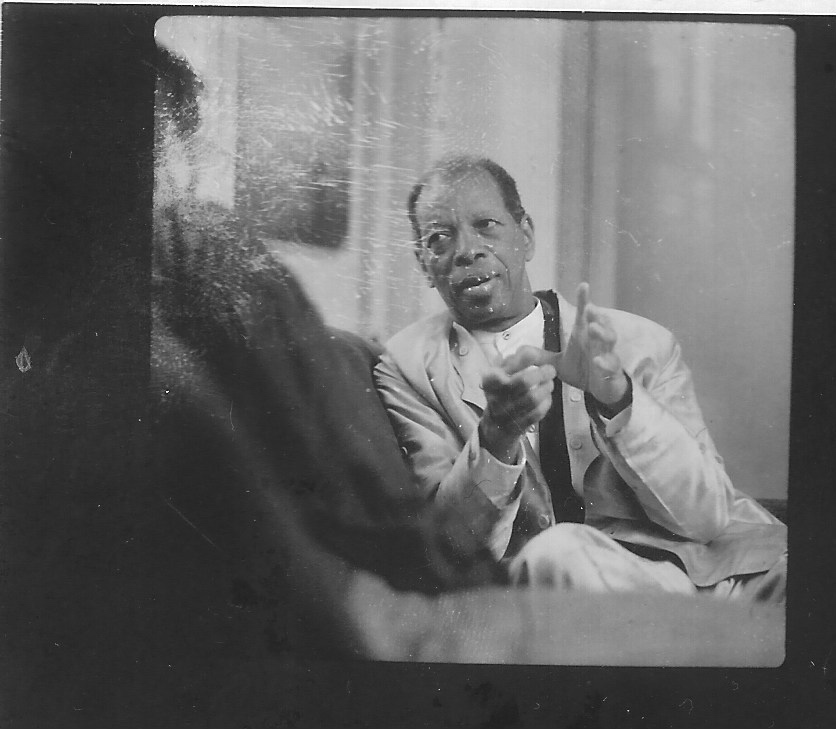 Oh yes.
Oh yes.
You are going to have the same artwork?
Well, we're trying. Have you seen the artwork for Tone Dialing?
Yes.
We've put a lot of stuff in that, but with CD now you can't do a lot of that. We were wanting to put the artwork so that when you unfold it, it would look like it was an album, but the condition it was when you unfold it wouldn't have the same texture to it, you know? So you can only do so much, but we're trying to do as much as we can so the person who's listening gets some quality that he can relate to that has to do with himself as well as the music.
I also understand you have got all the tapes back from Columbia of things you did with the Master Musicians of Joujouka?
Well, you know more than I know. (laughs) They sent me a letter -- I had an agreement that I was to get it back, then they sent another agreement that they were going to keep them. I haven't got any tapes back yet but I haven't challenged the rights yet. But it would be good to do that. Especially the Science Fiction and Skies of America albums, but we're going to put out some of the Joujouka music some day.
You have to understand that I watch your music from a geographical distance if nothing else, but it seems to me that there have been major turning points in your music. After the Master Musicians of Joujouka there was Prime Time.
Well, up until I went to Joujouka I'd only played with bass, sax and drums.
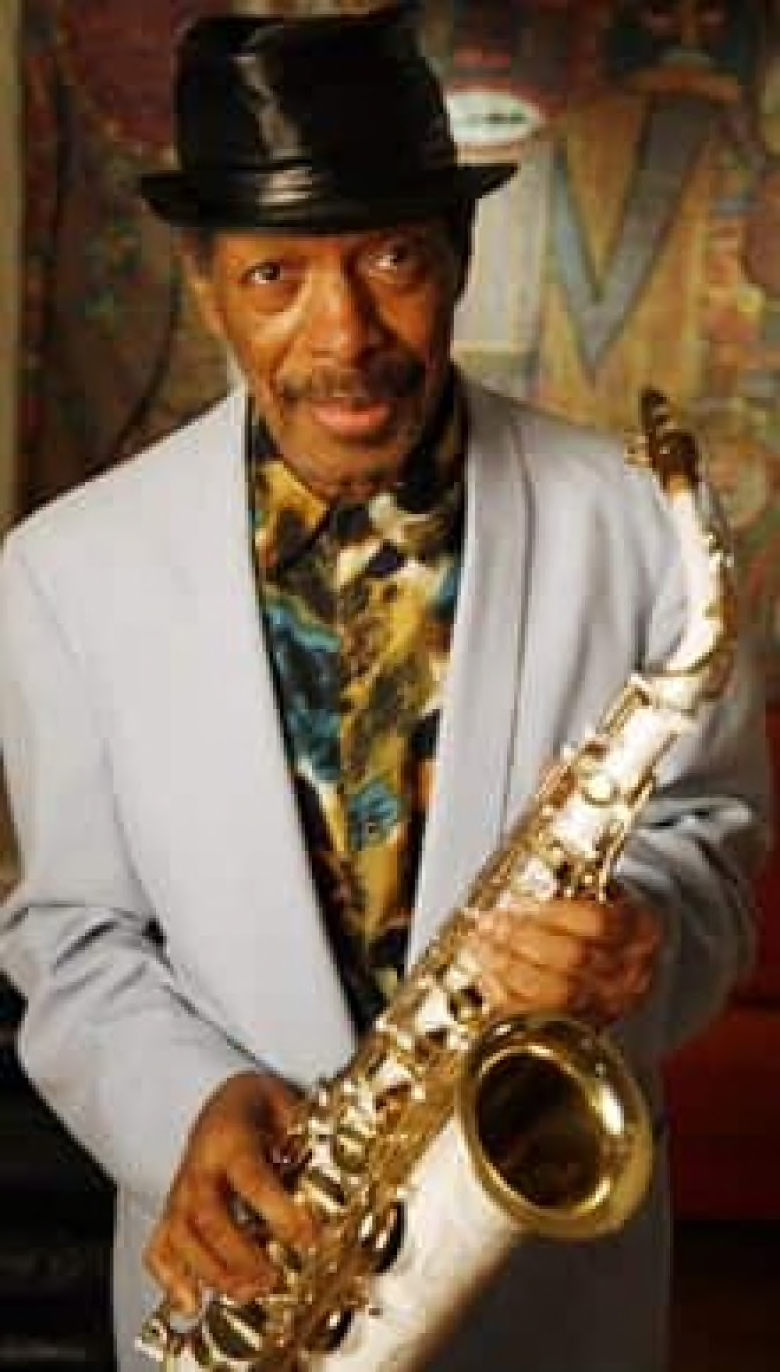 Basically I'm a composer so I started writing for symphonies and all kinds of songs and everything but when I went there I realized I had (met) a group of people dedicated their whole expression of keeping a commitment of how they came about to play the music.
Basically I'm a composer so I started writing for symphonies and all kinds of songs and everything but when I went there I realized I had (met) a group of people dedicated their whole expression of keeping a commitment of how they came about to play the music.
They were told by a saint that if they dedicated their life to this belief he would protect them and all they had to do was play music for ever. So they decided to do that.
And when I got there I thought they seemed to be doing pretty good and really seemed to be helping people. I thought I would like to go this way too but I couldn't do it just being a saxophone player, I got to find a way to develop a sound.
I'd like to bring out this quality so when I went to Joujouka I just went there and never rehearsed or nothing and just started playing and that told me that it wasn't a matter of playing different music but just we were in a different geographical place.
So I felt I could express the same qualities I am playing here with anyone, so I was going to put a band together to do that. And that‘s what inspired me to take the chance.
See, in America the jazz musician is really the last frontier of 'Go West', trying to find out how to open up territory so he can establish his way of existing. But he does that by improvising more than composing. So when I made my first record it wasn't to play the saxophone but playing music I had written.
But after I made that record I was labelled as a saxophone player and labelled playing to the minority of jazz, but never as a composer.
So I decided I was going to start seeing what I could do, what I wanted to be, which was a composer, which I was -- and I am. So I decided to put groups together to do the things I could write, and from that it's just been going on ever since.
It's been getting a little better although the saxophone is still to the fore and people think of me in the music relation to the saxophone, but this year I'm going to have some chamber pieces of mine, I've had two commissions one from Cologne and one from France.
I was commissioned to write a piece honoring the French revolution and I wrote a piece called The Country That Gave The Freedom Symbol to America. And it's going to be recorded this year.
This will be performed in Europe.
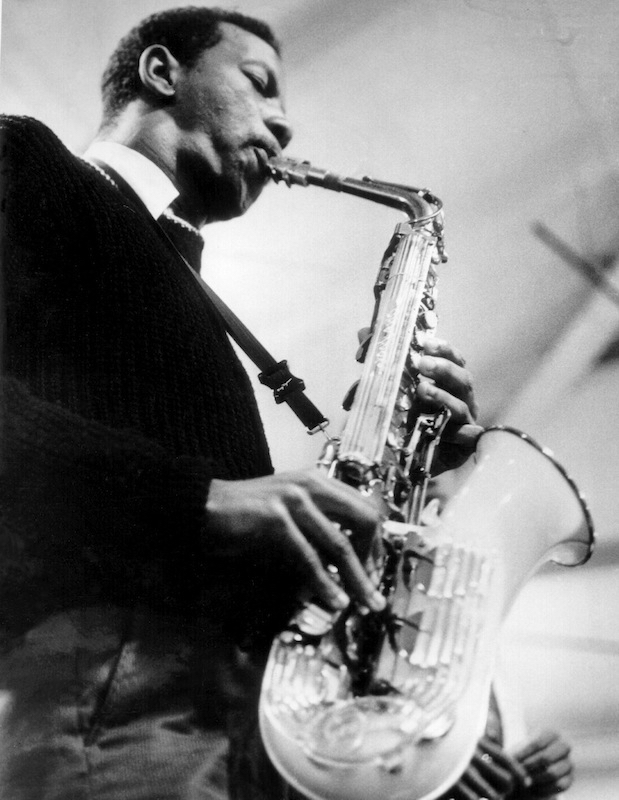 I also wrote a ballet which had eight different ethnical (sic) dancers set in the same setting as Swan Lake and I had the dancers to play their natural styles using the music as that format to dance in their own style, it's called Architecture in Motion and maybe next year its going to travel around the world.
I also wrote a ballet which had eight different ethnical (sic) dancers set in the same setting as Swan Lake and I had the dancers to play their natural styles using the music as that format to dance in their own style, it's called Architecture in Motion and maybe next year its going to travel around the world.
So as a composer I'm getting a little exposure.
Right, because the only things I know of are on record like Skies of America and what you did at Caravan of Dreams.
Even Skies of America I've only got 38 minutes of it legitimately out because when I done it in England you couldn't put that and what they call classical music together. But because I was playing both styles I felt that was not a good limitation for a composer. During that time the rules were that a jazz musician wasn't writing in that kind of way and probably that's why it was like that.
One of the things I also wouldn't know about would be that you came to New York 30-35 years ago and the musical climate here then would have been much more compartmentalised. What I look around and see is musicians going right across all aspects.
I think in the Sixties there was the Beatles, LSD, the Beat Generation, racism, human rights . . . so the Sixties was a state of those people who wanted to establish a meeting of their expression and started being that way without worrying about who cared -- and it was on many levels.
I remember when I was in Texas I grew my hair very long and a beard like the way you have yours, but in Texas minorities didn't walk the street like that regardless whether they were black or white. And I was black doing that so I had a problem.
So what I'm saying about, in America the standards of the family image change and the concept (inaudible) I think for me that is what is what I am trying to keep going towards a concept of world civilization that has to do with not needing a passport and just going and making a relationship with whoever is doing something to make civilization more enjoyable regardless of where you find it.
(That's) the audience and the consumer I am trying to relate to.
And it's getting better. I haven‘t been to New Zealand yet but I know they have a symphony orchestra.
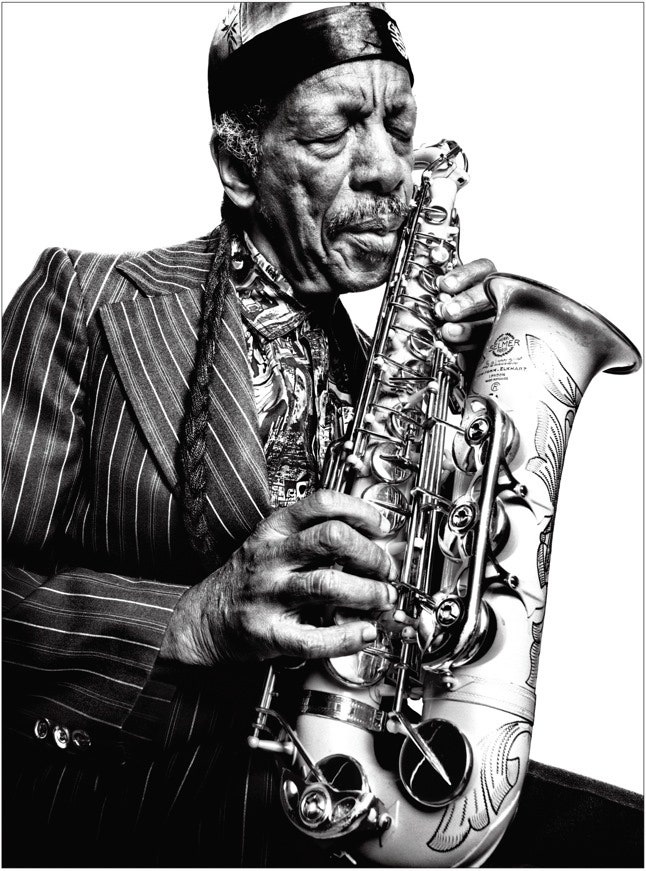 You know, the people that found civilization -- as far as shall we say the intellectual point of view, a technical point of view -- they go back to a level where they define it the way they say everybody now knows what damage to life is but we don't have to continue to improve civilization
You know, the people that found civilization -- as far as shall we say the intellectual point of view, a technical point of view -- they go back to a level where they define it the way they say everybody now knows what damage to life is but we don't have to continue to improve civilization
The vision is going down and repetition is rising and it should be the opposite. It should be the individual is rising and repetition is being eliminated and creativity.
You think there are parameters on creativity in people at the moment?
I don't think it so much in time, but I think in the arts like music, once the person that is designing things for the consumer, that person is more concerned about making sure that whoever consumes something that the concept of the market is more in the vein of that person going where, ‘everybody likes it so it must be good'. In reality the word 'everybody' doesn't include every race. It may include everyone that person is thinking about.
Because they are the ones limited in their vision?
Yeah, I would say two nights ago I went to hear a lady sing in Portuguese, I don't know how many Portuguese people were there but it was a full house. She never spoke one word of English, she never suggested she was Portuguese, she never suggested she was any race, she never suggested if she was saying something that if you knew what she was saying at the time she was saying that it would offend you.
Yet the music was beautiful.
So isn't it strange that someone should get in front of an audience and sing beautiful music and no one has to know what it is or have to be the same race that's doing it or everybody has to be the same nationality?
But everyone in that room agreed that it was something very good and everybody had had that experience. How come that can't be any person? How come, why does that guard, a palace guard [?] only contain people that fit this mode more than thinking that it's not a mode any race can do that.
For instance, I don't know if its true but when I was in Chicago in the early Sixties I met a young man who introduced me to a singer. This man wanted to hear the blues and something that suggested pain and history of human suffering and all this.
He was at the top but was singing concert music and one person might consider that religious and another person might consider it folk music if they weren't of that religion.
So if someone went to hear that person singing and was thinking ‘well, I'm not Jewish' but the music meant so much in humanism and what beauty and art is that anyone could appreciate it.
It's the same as once they called blues and rhythm, rock'n'roll. But a lot of people were singing blues and rhythm but it wasn't rock'n'roll because rock'n'roll is not limited to the format of the song, it's more the expression for Americans societies' attempt . . .
America has more white people in it, it's more to encompass their concept and their image of rock'n'roll. But the format of the song is not rock'n'roll. It's in many forms so therefore that limits the expression of what it is.
Classical music is the same. All of these expressions that I've had from democratic image -- democrat means the most people -- in some ways it's right to call it that when its many reasons including the reason why you want to call it that.
I've always thought like that even when I was in Texas.
That's one of the reasons why it took so long to get some attention as far as the quality of expression, because being a minority there are these things that other people have designed civilization do need to come and ask you certain things in order for them to appreciate something they are doing.
But you can't go and start doing something you do because you are (inaudible) it's a problem for everybody even if you are able to do something you want to do without thinking of themselves as a minority.
That's your epigram, 'remove the caste system from sound', which works equally well in the concept of Prime Time and also all...
That's right, I believe in the 20th century scientists or whatever field you are in you should be able to go into any environment and relate to it without changing what you believe and they believe.
And if that would be an image of the 20th century for the masses of people that occupy it Earth would become very very happy. But you don‘t really need to learn about language because the emotion of people you can understand. When you see them cry you know someone is hurt, when you see them smile you know they are happy.
The artist can share that way of meaning without words.
What you were saying before about hearing a Portuguese singer -- last time I was in New York I spoke with Bill Laswell who at that time said the two of you were going to get together.
Yeah, I'm seeing him next week and he has a beautiful tape of him and Tony Williams and he wants me to play with him and I'm going to do it one day. I really like Bill and he's always been really straight with me.
We were talking about music you can hear which comes from another culture -- and we were talking specifically North African music -- that you've never heard before but you knew from before you were born.
Yeah, that's true.
One of the things I've noticed is if we just took album titles of yours we've got The Shape of Jazz To Come, Tomorrow is the Question, Something Else, Change of the Century -- very hard hitting. Now we get Virgin Beauty, the essence of simplicity. Have you been refining that idea in your mind?
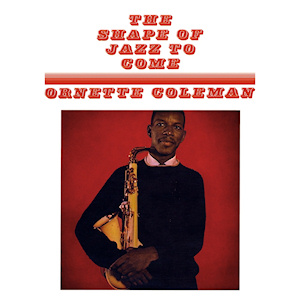 No, I was in London or somewhere and I had come upon some ethnical expressions and the African guys I found their lifestyle and they were dressing up beautifully to court women and I thought maybe these guys wanted to be virgins but they look like women but they are men and they are not gay.
No, I was in London or somewhere and I had come upon some ethnical expressions and the African guys I found their lifestyle and they were dressing up beautifully to court women and I thought maybe these guys wanted to be virgins but they look like women but they are men and they are not gay.
They just wanted to dress that way to get a woman. I thought this has got to be very (inaudible). I have tried to design covers that have something to do with the visual and the audible and the philosophy of what causes us to become like that.
We were in San Francisco last year at a festival and the guy asked me what what would you like to do and you know I was think it would be good to go to another level with Prime Time and I'd been reading a book about an English couple who'd gone around the world in search of miracles to Morocco and people who would try to like religiously and spiritually and they were discovering some fantastic things coming upon a tribe in Thailand or Tahiti or somewhere where the people were praying and walking on hot coals and piercing at the same time.
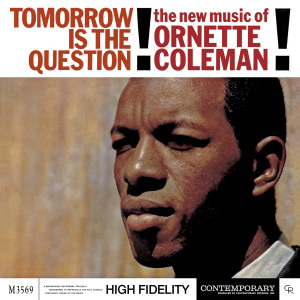 I thought there had to be some fantastic notes there, whatever the equivalent was to playing with that, if I could play music with that without it meaning what it means and someone saying 'Oh, i burned myself, I can't walk on these coals, I can't put an arrow through my cheeks or my skin it would bleed'.
I thought there had to be some fantastic notes there, whatever the equivalent was to playing with that, if I could play music with that without it meaning what it means and someone saying 'Oh, i burned myself, I can't walk on these coals, I can't put an arrow through my cheeks or my skin it would bleed'.
These people had no blisters and their skin wasn't bleeding so that proves what those people were scared of didn't exist, yet they were doing what the people were scared of.
Now if you think about that it is just like music. Music can make you cry and other moods like that.
So I thought if I could find some people like that who would be willing to share what they are doing in my environment and I share what I do in theirs then maybe the public would begin to understand that everything is one.
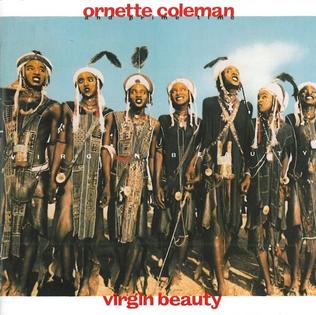 So I found a man last year by the name of Artura that was piercing and it was so fantastic. I did it last year in San Francisco and had these three dancers, and one was a young white kid that his parents were deaf and dumb and he was dancing so beautiful. And I had this African girl and another girl had just had a baby.
So I found a man last year by the name of Artura that was piercing and it was so fantastic. I did it last year in San Francisco and had these three dancers, and one was a young white kid that his parents were deaf and dumb and he was dancing so beautiful. And I had this African girl and another girl had just had a baby.
I thought something was missing, I had to find a person that was interested in the philosophical ways (inaudible) so I heard about (inaudible). I thought I would lose money but would make it up some other way and I heard about two Korean people who were supposed to be enlightened and they were in Paris and finally I heard about Artura who sent me a video of him lifting a person almost as large as you are from putting a (inaudible) through his nipples and lifting him up.
I thought ‘Oh, man, this is the guy‘.
So he came and it was fantastic and if I had to do it over again I'd do it better.
So I hope to keep going in that direction with Prime Time even though it isn't commercial music. You know, commercial is the word, when you go in and buy something the people that have created commerce are the consumers, that's what commerce is. We all do that.
You don‘t go to my house to buy my records, you go to a store. That's commercial.
But anyway, everything that leads are bound to do with intellectual or anything (that) are motivated by speed and electricity and therefore we are bound to use things to communicate because speed moves things faster.
But people now say I've got a rock'n'roll band because I've gone electric. I made a record now with Geri Allen and Charnett [Moffett] and we call it acoustic but we are still playing things in a way people can hear and now I travel with both of those bands to make (people) see how insecure they must be to believe that saying something about is connected to a big weighting [?]. But that part of the art is just not true.
It's just like I see now all the guys that were playing rock'n'roll and blues and rhythm, they are now in the jazz category but they are not calling them electric.
It's really terrible. No, it's not terrible because the people they are managing, people they want their people to be at the top but there's only person who can be at the top if you are a boxer and that's the person that's still standing.
But art is not like that but everybody uses that criteria to know what the best is, they put you in that category or this category and all they need is your face and that means you are the best.
But that doesn't really mean that, it just means you are in the best environment. So now they have all the rock'n'roll and everybody is going to the best. Jazz used to be the art form because I want to be myself, but now jazz is a term that represents the individual growing up in an environment so that that environment is not revealing all the information that these people are using to be successful, because someone has made it cheaper than what is real and you can use to fool somebody.
I'm not one of those persons because everybody has become a jazz person, jazz people . . .
With regards to being commercial -- particularly Virgin Beauty and Tone Dialing -- I would attribute that to [your drummer son] Denardo's influence on your life, he's your manager?
One of things is that Denardo, when I first played with him, he did something I've never had an experience with until this day.
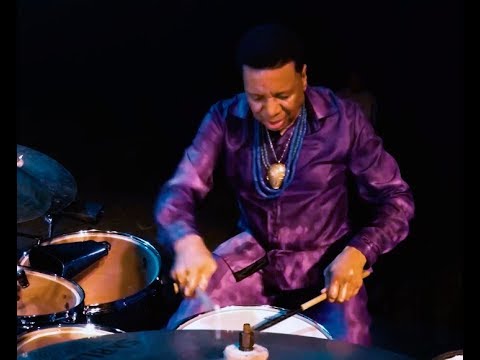 He turned a rhythm pattern into a note into a sound into a rhythm and just played himself independent of what I was playing with other people.
He turned a rhythm pattern into a note into a sound into a rhythm and just played himself independent of what I was playing with other people.
I have encouraged him, when he growing he told me he said 'I don't think I want to be a musician because every time I look in the paper and people are talking about my playing they are always saying and equate me with being an adult. And I'm not an adult, I'm a kid.
And I said, forget that and just do what you believe and don't worry about changing it because someone doesn't appreciate what you are doing because they are insecure. Because what you are doing is something they haven't thought about themselves, but they would probably do it and would be influenced by you.
But they don't want to say they'd be influenced by a kid.
I read in the paper where there was a little boy who was four or five years old who couldn't read or write so he went and got a piece of paper and drew his feet and went and showed his mother and you know what his mother did, went and picked that pattern and they became millionaires within a month and the little boy was just thinking about showing his mother.
That was a brilliant idea and he was only four years old so anybody can get an idea from anywhere. But in Western culture we see civilization a monarch (???) that has a pattern, that we're supposed to be patterned after someone that doesn't have to do anything or tell you what you to do. That's hardly natural.
I like the idea of childlike naivety and innocence and I've noticed with my partner's children they have no few preconceptions about Ornette Coleman music, they just listen to Virgin Beauty and like it.
That‘s right, and I must say that at some companies there are some people that work harder at their companies for their artists. Not so many people work hard to make jazz musicians successful and I think that's because the jazz musician has an air about him that he doesn't want to be a person to integrate in his expression but they want him to integrate into his financial condition -- so it can't happen that way. It has to be both.
With me I've always tried to get my finances and my music straight and both equal. I already know that if I went and played to one person I think I could move the same person, move him as much. I believe that. I don't think of it as a category of who's the best but as the category of the quality of what you do.
Do you think it's important money is put into the picture so people understand that all these things are of equal quality, that all music is of equal quality, regardless of whoever is at the top of the charts.
I think that money is not an example of equal quality I think of money as an example of a quality of what money allows people to discover.
In other words, like Picasso. Picasso never set foot in America but he was so talented that America was buying his art and paying $10 or $15 million dollars and they didn't care if he was a Communist. Still, in America there were artists who were Communists and people were taking their money from them! That‘s crazy!
They were buying Picasso and saying, ‘you are a Communist and we're going to stop your flow of money because you're in the wrong business' but they would go and buy another person's work and pay him the same, like two million dollars for this painting.
'Ii don't want to sell that painting'. 'Oh please please we‘ll give you more' That does exist in this society and it has nothing to do with no politics, and no race -- so why can't everyone have the privilege to be that way?
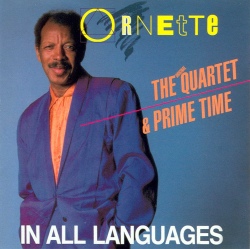 On Tone Dialing you revisit [the tune] Kathleen Grey, I like the fact you do that -- like In All Languages
On Tone Dialing you revisit [the tune] Kathleen Grey, I like the fact you do that -- like In All Languages
I had never recorded that with Prime Time, that's why I done that. I did it with Pat Metheny and that was the first time, I had written that for her because she was very she made a movie on my life and her name was Kathleen Hartman and she was at the Caravan of Dreams and everybody was interrupting my work and everybody thought they were just the people that was throwing money down but it's not true, they were just admiring me on the same level as what they were doing.
I like the fact you do go back and revisit material, like on In All Languages.
That's the point I'm trying to make, not trying -- but I know there's no difference between A natural in pigment and A natural in [inaudible, an artist's name perhaps?] may have more information but it don't mean any more to him than it does the pigment.
Some people are sophisticated but I like to have my milk from the milkman, I'm not going to drink it directly from the cow. But it's still milk.
Society is always how brilliant and intellectual and valuable society becomes, it is not about human beings.
The genders, that's all that exists, if gender didn't exist they would even know what a human being is. The concept of gender and the concept of men and women is not the same, but the gender is the connection between men and women and male and female -- and the men and women is really what makes a person ignore you but as a men and women you have to know his parents.
That is why someone will do something beautiful like invent an atomic bomb and do whatever it is that makes them stand out as a male or female to being a man or woman.
And artists have been trying to do that from way before. The artists I have read in history books that have existed before me and their lives were terrible. When I saw the story of Mozart . . . I've seen lots of stories of Mozart and the one thing I do say is someone made sure that he was given immortality in the European image white environment.
He was given immortality in that music, but there was other people whose music was just as valid but their life was not lived like a European. To me even when I hear the music it sounds like beautiful kids, like that. Which I think is immortal and feeling what he heard, he wrote that down and left it, like everyone else.
Sometimes in commercialism people say, 'We don't want this with that’ and they put it separate. But really as much as I see and what I'm trying to do, I've written a theory book about harmolodics.
It's going to be published?
It's going to be. I'm going to publish it, I haven't decided how it's going to be done. I really want to share it with education system of the world, that's where I really want to go first. But what I'm saying is that as much as I know I could take any symphony and modern music and I could show people musicians where they can't improvise, how to take any symphony and improvise that symphony the same way I'm doing with my band.
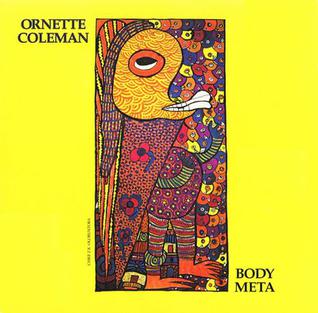 There is no sound that can't be outdated for a better sound. But I haven't found that sound to show that, but I know the method of how that sound is done.
There is no sound that can't be outdated for a better sound. But I haven't found that sound to show that, but I know the method of how that sound is done.
That's not something I can do, that's something an individual does, so whether it's me or Mozart or Bach or whoever it is, an invention is not so much like that.
The only thing you can invent with a light is a better lightbulb, you can't invent the light. So inventions don't have that, but expression is not like that.
Do you feel fortunate to have lived in a century where your music is recorded and it’s out there forever.
I hear what you are saying but I don't feel that way. If that was true I would feel closer to what civilization is, someone has done that for some people but they haven't done that for the same reason you are asking me.
For instance about 20 years ago some people took Thelonious Monk and Louis Armstrong and a bunch of others great Americans and put them in a capsule so when the world will blow up then they will know. We sent it in space and aliens are going to find it and say, 'Wait a minute, we got to go down and join these people' with all this stuff going down.
Well, the thing about it is those people wasn't going to have that relationship down here as how they got together up there, so that's what I'm saying.
It's kind of false thinking.
But if it ever gets better, really better, then I would say I would appreciate that.
But Mozart's work, we don't know what that would have sounded like to those people at that time.
Yeah, because of the reproduction. I think that's true but they do have his writing. You mean we don't have recording of him playing?
Yes, we know exactly what Ornette Coleman wanted to do in 1962 because there it is.
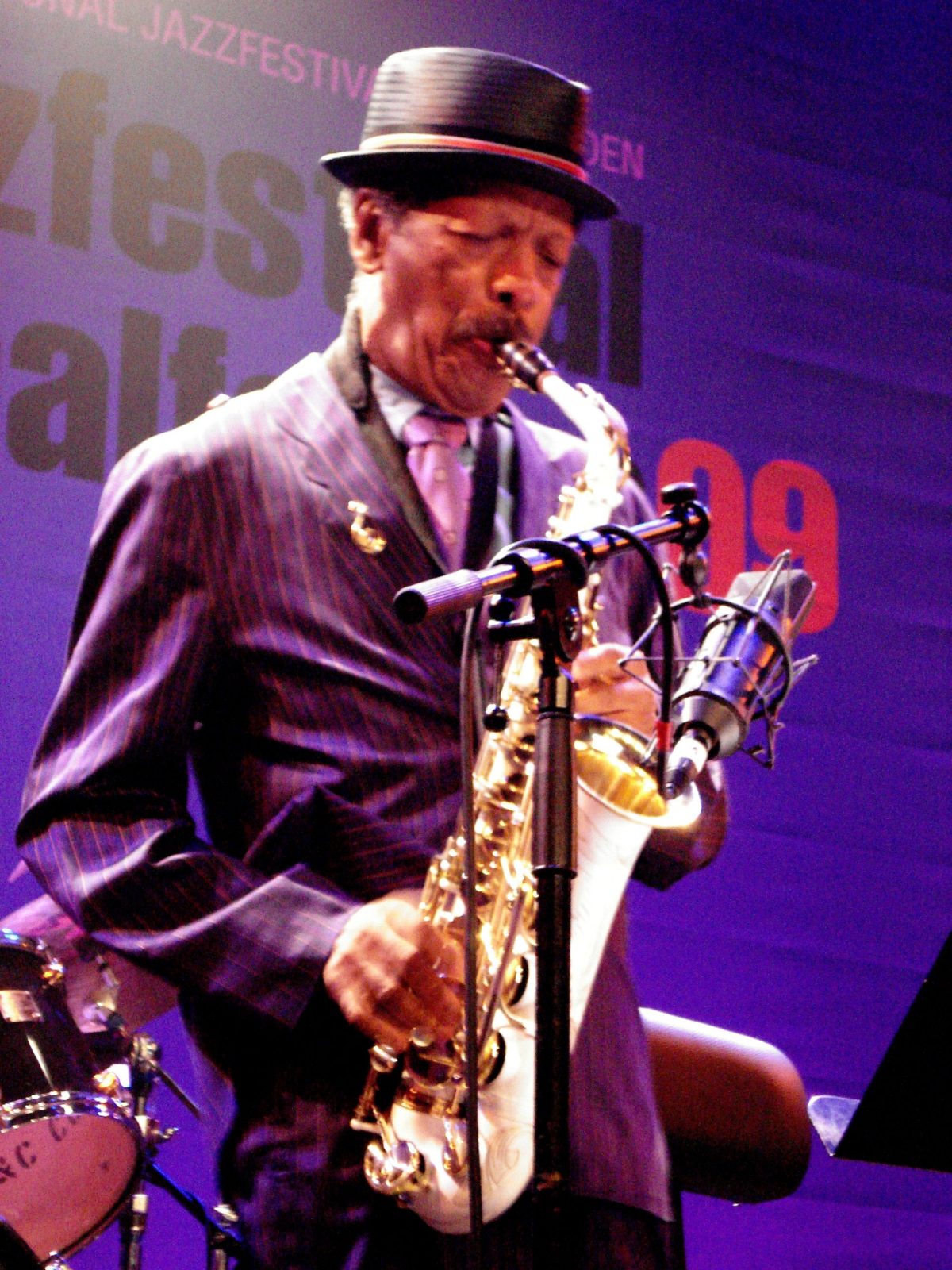 Well, I disagree with that. I was able to get something I was working on done that gave you the impression of something I was working on, which I think that's true of Mozart as well. Even if you don't have anything of what he wrote because I think that's true of me, that's what I'm saying to you about doing something better than you've ever done it without referring to what you've done in the past. But you're not allowed to do that.
Well, I disagree with that. I was able to get something I was working on done that gave you the impression of something I was working on, which I think that's true of Mozart as well. Even if you don't have anything of what he wrote because I think that's true of me, that's what I'm saying to you about doing something better than you've ever done it without referring to what you've done in the past. But you're not allowed to do that.
People say ‘I don't like what you're doing now. Go back'. I'm sure Mozart had that.
You've got a rock band now and jazz people say 'go back'?
But as a composer that's not true. So to answer your question, the artist that paints -- I mean, Picasso paints beautiful faces and the next thing he paints a minotaur and it's just as beautiful. Maybe that's because of education. Art has a higher priority than any other thing, I guess that's why they call it art.
What do you think makes it art?
I think individual creativity of expression
No, but what . . .
As opposed to science? Is that what you mean?
No, how do you know it's art just because someone done it? That's what I mean.
If that was true then anyone could be an artist. What I think, the work that now science has developed is to remove people from doing slavery type work because of reproduction and now most people tend to become artists.
The graffiti kids are considered art - do you think that's art?
I think when you express something you cannot express any other way that you are approaching some form of art. In their heart and mind they are approaching art, but art as we know as art, whatever -- that's what I just asked you.
That's a very good question because where somebody would pay $10 million for a Van Gogh and wouldn't give you a dime for graffiti but we might look at both and get the same sensation, more or less it ends up that Van Gogh has more history than this person so this is causing him to be more valuable.
This is why Jackie Kennedy's things are now being auctioned off at ridiculous prices.
It's funny you should say that because [Robert] Rauschenberg gave me one of his silkscreens about 20 years ago and I was evicted from my place and I met a guy who said I should leave my stuff in this place and it got stolen or sold so I accused him.
I went to court and everything, but for some reason he got it so there would be hardly any money and the same piece was mine. A guy named Jimmy paid $9000 for it and it went to $20,000 and I didn't even get the $20,000. So what you are reminding me of in Western culture is every person evaluates what something is valuable according to his environment, but it doesn't change from the value of the person that done it.
That's my point, I'm saying someone told me what I had was less because it was in their possession, not mine.
The work has its own innate value anyway. We've talked about your expression, how do you feel about some of the people who interpret your work? Jamaaladeen Tacuma, John Zorn. . .
When John Zorn put out his record called Spy Vs Spy I felt he was . . I used to go in to the Jewish Kabbalah and I was always trying to get people interested in it because I think it's a very high form of spiritual information.
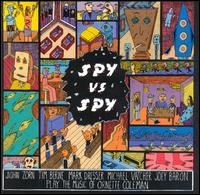 But it meant it changed my attitude of him as a human being.
But it meant it changed my attitude of him as a human being.
One day I was with John and [critic] Peter Watrous, they were [talking to] me about black music and this and that, and not specifically about Coltrane. And the next time when I saw them they had gotten enough security to say ‘Oh, now I see'.
In other words, in America the tribes that are identifiable as races don't always feel free as races because they are tribes that are supposed to have their image of freedom.
Like a white person, every white person don't feel free but every person who is not white feels that person is free, so I'm thinking like this about John. They maybe feel like this person is playing this music so he's allowed a certain freedom that I don't have and I'm a white person and the people who are giving him this freedom are the same people as me.
But they're not giving me this freedom. So what does he have that I don't have So that's what that problem is with society, but their own tribe likes them very much.
The John Zorn band has its own TV and its own everything, I'm sure he has no problem being played by his own tribe, they love what he does and they know what it means for people to love what he does.
My tribe hasn't supported me like that, I've just had the human tribe. But anyway, like I said before, if someone takes something that I do and makes it better than what I've done, more power to them.
You know I have to ask you, have they made it better though?
I haven't been asked to find that [laughs]. As a composer how can you know something you haven't done? How can anybody do something they haven't done? That's real democracy isn't it?
If someone asks me has someone done it better than I've done, I can‘t hear that because it hasn't been done, I haven't done it myself. That's not the same thing as education because education is reproduction, creativity isn't like that.
Even scientists in some way are creative because they look at what they've done and keep adding, they've got it so good now they can change organs in human beings and stuff. They‘ve learned the reproductive course the hard way to do that.
You seem to be a man who has a lot of admiration for the intellect.
I have a lot of admiration for people that aspires to do something that people call intellect, but is natural.
Finally then, sir. As a composer, the things you are working on at the moment -- do you see any particular direction that you are going?
That's what I've been talking about in the last hour, that's what I thought I was talking about. [laughs]
That's what I've been blabbing with you!
.
Ornette Coleman died in June 2015. He was 85.
.
Because Elsewhere has long considered Ornette Coleman one of the greatest musicians of the 20thand early 21stcentury there are considerable number of articles and overviews of his music and career starting here.
.
I have very few photos (literally about four) of me with the many hundreds of musicians I have spoken with. But this, in a photographer's studio at the end of a long conversation, was casual and quick. I treasure it and so in a rare moment of bragging, here is me . . . with the great Ornette Coleman.
.
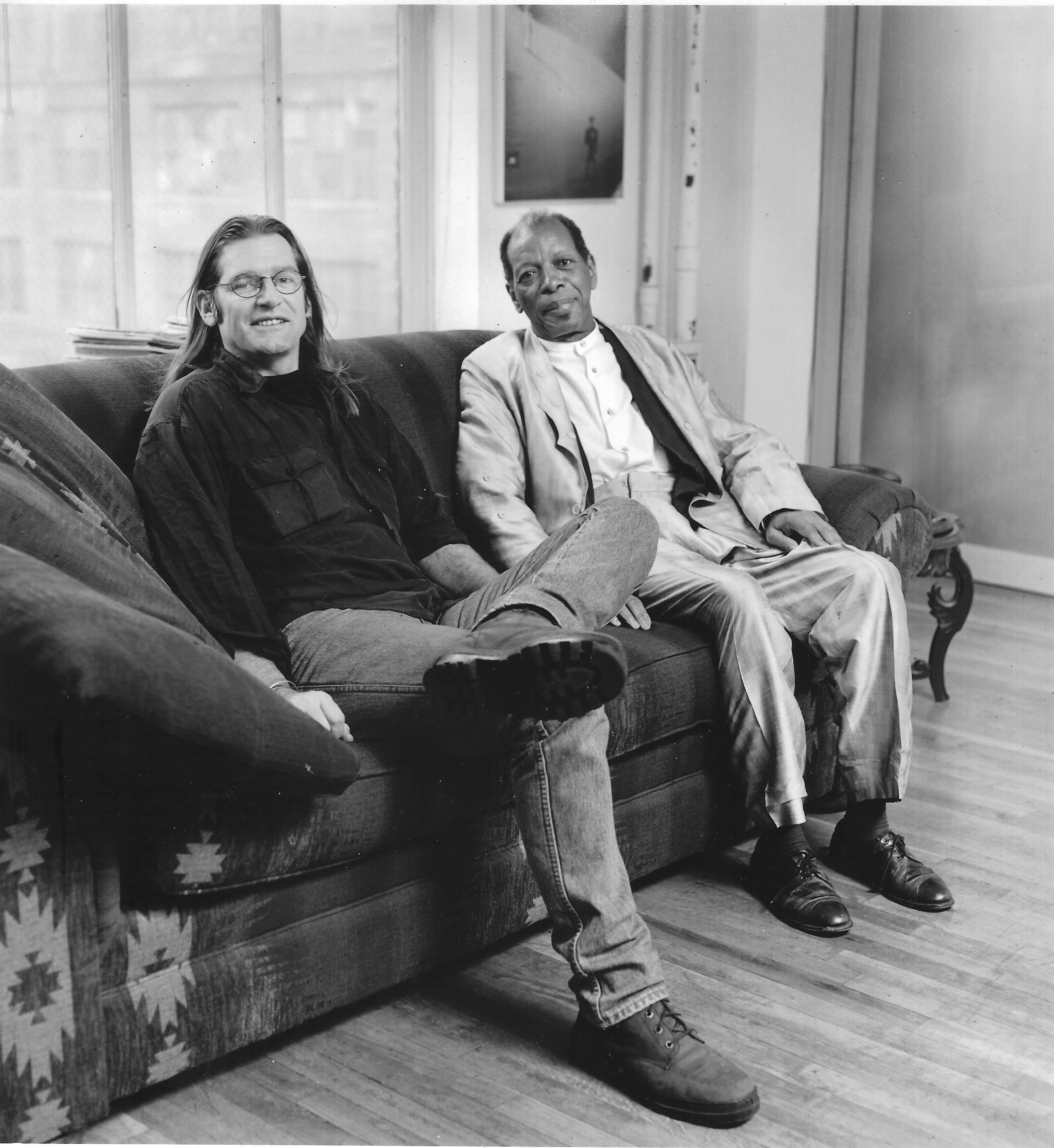

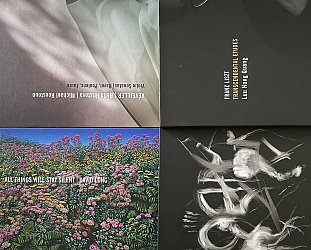
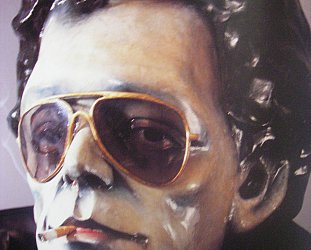

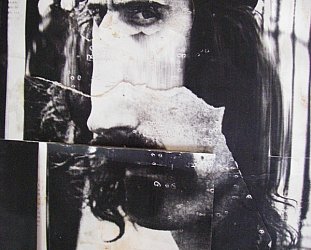
Alan Jackson - Aug 23, 2022
Wonderful stuff Graham. A joy to read, even its less linear passages. What a privilege to have met, talked and spent time with him. Well done and thanks for sharing.
SaveRoss Duncan Middleton - Aug 26, 2022
Much appreciated.
SaveKelvin Roy-Gapper - Sep 29, 2022
Makes a lot of sense to me... See, in America the jazz musician is really the last frontier of 'Go West', trying to find out how to open up territory so he can establish his way of existing...an update on Horace Greeley... Then expands into the space-time. "Weighting" is the (power of) category or style. Repetition is the education/distillation. Feeds the creativity. I look at it as going through a funnel backwards (and his philosophy reminds...). The truth is in the context...
Savepost a comment